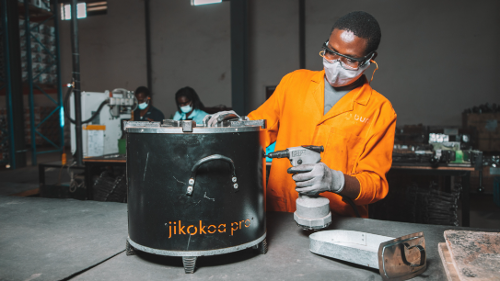Governments, DFIs, firms pledge $2.2bn to clean cooking in Africa

TLDR
- $2.2 billion pledged in Paris to advance clean cooking initiatives in Africa by key stakeholders including African Development Bank and the European Union
- Africa requires $4 billion annually to phase out inefficient wood and charcoal fires by 2030, per International Energy Agency estimates
- Equinor ASA, TotalEnergies SE, and others to collaborate on promoting access to liquefied petroleum gas for cooking in Africa at COP29 summit
At a conference in Paris, governments, multilateral lenders, and oil and gas companies collectively pledged $2.2 billion in financing to advance clean cooking initiatives in Africa. This aims to address the detrimental effects of traditional cooking methods, which contribute to respiratory diseases, carbon emissions, and deforestation.
Key contributors to the pledges include the African Development Bank, the European Union, and Vitol SA, among others. Per estimates by the International Energy Agency (IEA), Africa requires $4 billion in annual investments to phase out the use of inefficient wood and charcoal fires and stoves by 2030.
In a separate initiative, the World Liquid Gas Association announced that Equinor ASA and TotalEnergies SE, alongside Petredec Ltd., Oryx Energies SA, and S&P Global Inc., will collaborate on a task force. This task force aims to promote access to liquefied petroleum gas for cooking in Africa and will present its plan at the COP29 international climate summit later this year.
Key Takeaways
In Africa, over 900 million people rely on primitive cooking methods, leading to 600,000 annual deaths, mainly among women and children. Progress in adopting clean-cooking technology lags, contrasting with advancements in Asia. The World Bank estimates inaction's annual cost in sub-Saharan Africa at $330 billion due to health and climate impacts. The IEA urges $4 billion yearly investments to eliminate inefficient wood and charcoal stoves by 2030, proposing carbon credit sales as a financing solution. This endeavor could annually reduce CO2 emissions by 800 million tons, exceeding South Africa's emissions, the 15th-largest global emitter. Urgent action and investment are imperative to transition Africa towards cleaner cooking solutions.

Next Frontier
Stay up to date on major news and events in African markets. Delivered weekly.
Pulse54
UDeep-dives into what’s old and new in Africa’s investment landscape. Delivered twice monthly.
Events
Sign up to stay informed about our regular webinars, product launches, and exhibitions.




